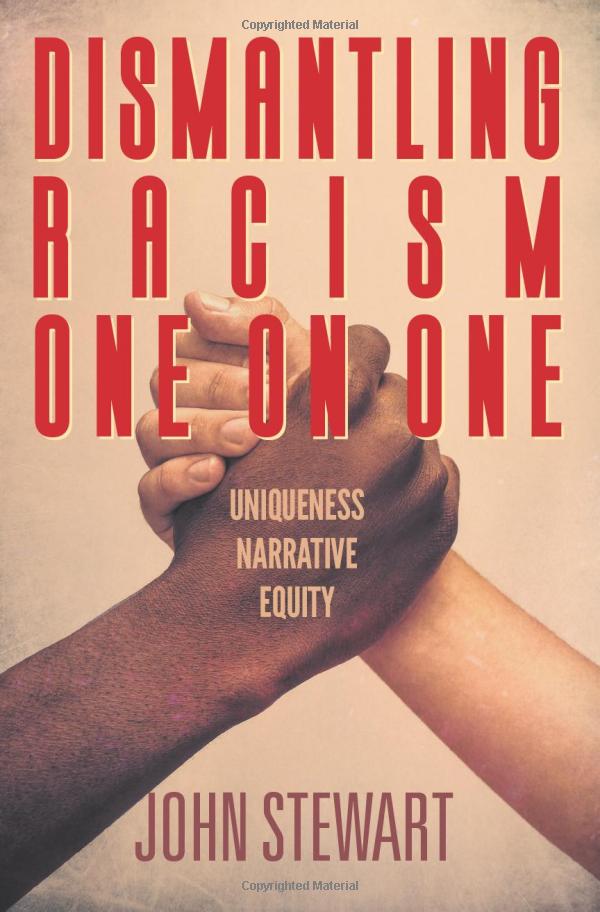
AVAILABLE IN PAPERBACK, KINDLE, NOOK, AND AUDIOBOOK
When I talked with readers of the 2013 edition of U&ME, it became obvious that the book needed a chapter on multicultural moments that matter, that Chapter 2 was too dense, and that the political communication chapter needed a discussion of what you can do when a colleague, friend, or family member starts spouting political ideas you disagree with. So I made all those changes and also went over every paragraph to make the book as readable as I could.
The New and Revised edition does this–
- Chapter 1 clarifies the importance of moments of communication, connects the quality of your communicating with the quality of your life, and emphasizes the importance of the actual ways you listen and speak. It also introduces the ideas of mis-meeting vs. meeting and impersonal vs. personal contact.
- Chapter 2 explains how neuroscience demonstrates that humans are the only beings we know of who can relate to what’s around us in two ways, impersonally and personally. Lots of cultural forces push us in impersonal directions, so our lives are hurtfully imbalanced. It offers a simple, 4-part way to help make your communicating “as personal as possible” in every life arena. This just means that you bring into your listening and speaking your own and the other person’s uniqueness, choices, emotions-spirit-psyche, and reflective mindfulness. The rest of the book shows how to do this in 8 life arenas.
- Chapter 3 is about the life arena of online communicating. It explains how to use, for example, the distinction between vertical and horizontal media to help make your online communicating as personal as possible.
- Chapter 4 is about dating and courtship. It explains the three both-and pulls (“dialectical tensions”) that people experience and how to manage them to make this communicating as personal as possible.
- Chapter 5 is about the challenges of family communication. It shows how distinguishing between information and identity messages can improve your communicating in this context. It also explains how to manage conflict, especially in families, but also in other life arenas.
- Chapter 6 focuses on business. It appropriates what famous business gurus like Steven Covey say to help you make your leadership and listening on the job as personal as possible.
- Chapter 7 is about learning situations–whether you’re the teacher or trainer or you’re the workshop participant or student. Again, it appropriates what some educators have been saying for decades–that learning happens best when the communicating is as personal as possible.
 Discussing U&ME at Centralia College
Discussing U&ME at Centralia College - Chapter 8 focuses on politics. First it offers some ways to think about and manage situations where somebody wants to spout political beliefs you disagree with. Then it explains how, if you think globally and act locally, you can do good work despite the political polarization that’s all around us by using the communication skill of facilitation to build social capital.
- Chapter 9 looks at multicultural situations–where you’re challenged to deal with people who are different from you. It explains what microaggressions are and why they’re important and then outlines 4 steps toward making these events as personal as possible. Step #4 includes 5 specific suggestions, including, “Apply the Platinum Rule.”
- Chapter 10 is about spiritual and religious conexts–including meditation groups, 12-step meetings, drum circles, Law of Attraction meetups, or gatherings of Buddhists, Christians, Jews, Muslims, or members of other organized religions. This chapter discusses how reading, singing, praying, and preaching can all be made as personal as possible.
- Chapter 11 summarizes the book in 3 guidelines and helps you take what you’ve learned in the other chapters out into your life.
You can read the first two chapters to get the approach and then the chapters that are most relevant to you. Or you can shop around the book in other ways. There’s lots here to help you enhance the quality of your life because, as the Preface says, nothing is more important to the quality of your life than your relationships, and nothing is more important to your relationships than how you listen and talk.
ORDER YOUR COPY AT:
- Taos Institute Publications
- Amazon & Kindle
- Barnes and Noble & Nook
- Riverlights Book Store in Dubuque, Iowa




